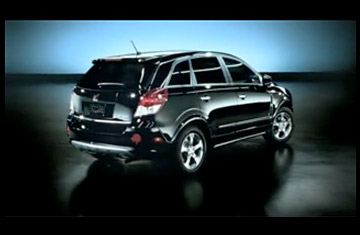
One month after General Motors announced that it was preparing to spin off or drop Saturn as part of the effort to regain viability, the beleaguered automaker is now spending millions of dollars on ads for Saturn during the telecasts of the NCAA Basketball Tournament. "We're Still Here," one ad emphatically says, as if to squash rumors to the contrary. "It was an odd thing to see because it's a short-term fix. It's obviously part of a holding action," says Alan Baum, an analyst with The Planning Edge in Birmingham, Mi. (See the 50 worst cars of all time.)
GM Chairman Richard Wagoner said in February that as part of the company's ongoing restructuring the automaker was withdrawing its support from Saturn at the end of 2011 model year. Vice Chairman Robert Lutz told reporters at the North American International Auto Show in January that GM had mounted an expensive overhaul of Saturn by adding a new sedan, a new crossover and a new hybrid. Saturn sales, however, have fallen by more than 40% during the first two months of 2009, and appear to have tumbled again during March. "Everyone is hurting, but Saturn is hurting more," says one dealer. (Read TIME's 1985 article about Saturn's debut.)
GM lost $31 billion last year and it withdrew its advertising from the Super Bowl and the Masters Golf Tournament next month, but it is spending an estimated $64 million on the NCAA Tournament, where a 30-second spot runs $1 million, according to Nielsen Media. The spots will promote many GM brands, including Pontiac, a nameplate that is slated to be downsized to just one model over the next few years.
However, Saturn spokesman Mike Morrissey insists that the expensive ads for brands on the chopping block do make sense. "We had been holding back on our advertising. We thought the time was right," says Morrissey, adding the NCAA Tournament has long delivered a young, affluent audience favored by carmakers. "We're very much alive," he says. (See the worst business deals of 2008.)
Of course, many Saturn employees and dealers hope for more than a sales boost. They want a white knight. "I've felt for more than a year that GM could not support the Saturn brand the way it should be supported," says Jay Cimino, a Saturn dealer who operates five Saturn Dealerships around Denver and Colorado Springs. "If we were spun off to the right people, it would be great," he adds.
So who could possibly buy or adopt Saturn? Private equity firms are facing big losses, and the painful experience of Cerberus, which bought Chrysler, has not gone unnoticed. But Morrissey insists there are still options: "We think we have some very interesting opportunities for Saturn," he says. GM's critics have argued for years that the company had too many brands and the return on the investment was negligible. However, Saturn did succeed in proving car dealerships could have friendly customer relations and a good reputation for customer service. Because of that, Cimino says, the Saturn dealer network could serve as ready made platform for an ambitious Chinese, European or Indian company.
